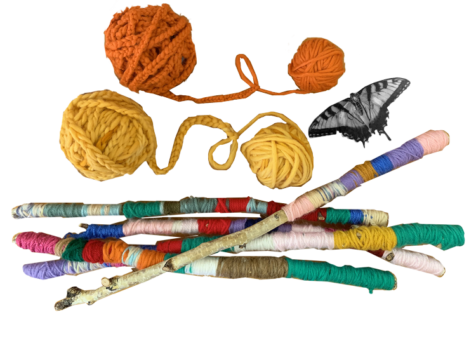(ages 3 – 4 years old)
Welcome to the Waldorf Preschool!
Willow Class
Our play-based program serves preschool children by providing young learners with a rich and stimulating environment that allows them to explore, discover, and engage in imaginative play. We love kinesthetic learning! Through hands-on activities children are given the freedom to express themselves, develop their social skills, and lay the foundation for critical thinking skills.
Preschoolers enjoy experiential learning, with a blend of artistic endeavors, practical skills, and outdoor exploration. By integrating arts, crafts, and nature-based experiences into the curriculum, our approach ensures that young learners not only develop cognitive skills but also emotional intelligence, physical coordination, and a deep appreciation for the natural world around them.
The preschool daily rhythm includes the work of the day, free play (both inside and outdoors), circle time, story time and puppet shows.
The Preschool Daily Rhythm
From the time the children arrive at school at 8:30 am, the day moves along based on a natural flow and predictable rhythm.
- Welcome
- Work of the day – painting, drawing, breadmaking
- Free play (inside), followed by tidying up
- Circle time – seasonal games, songs, verses, and movement
- Snack
- Free play (outdoors)
- Story time and puppet shows
- Lunch
EXPLORE ~ DISCOVER ~ ENGAGE
Key Highlights of our Early Childhood Program
A hallmark of Waldorf early childhood education is that all of the academic foundations the children learn are embedded in our experiential curriculum.
Self-regulation emerges as children experience nurturing daily and weekly routines that provide predictability and comfort. Additionally, our classrooms offer a homelike, calm, and emotionally safe experience for children.
Speech and language skills are developed through participating in story time, puppet shows, and circle time which are part of daily activities. Through exposure to fairy tales, nature stories, poems, and songs, children build a capacity for literacy in the areas of vocabulary, visualization, memory, and listening skills, as well as the ability to focus.
Fine motor skills, which help support manual dexterity and hand-eye coordination, are engaged daily through arts and seasonal crafts. These tactile activities include watercolor painting, drawing, beeswax modeling, and finger knitting.
Social skills grow through imaginative and collaborative play. During free play children deepen their relationships through communicating with each other, and learning to share and resolve conflicts.
Kinesthetic learning occurs each day as the children are welcomed into a sensory rich environment in which whole body movement is encouraged during unstructured inside and outside free play, and structured activities led by the teacher such as circle time and clean-up time.
Gross motor skills develop, particularly during outdoor play, that lead to coordination, body control, and spatial awareness. Children are encouraged to run, jump, skip, climb, swing, balance, dig, build – and move!
Program Information
Our preschool class offers 4 and 5 day schedules.
| Half Day | 8:30 to 12:45 |
| Full Day | 8:30 to 3:30 |
| Extended Care | 3:30 to 5:30 |
An organic snack is provided by the school daily during the morning program.
Our small class sizes enable our teachers to provide each child with individual attention and nurturing.
- 1 Lead Teacher and 1 Assistant Teacher
- 1:12 Teacher-to-Student Ratio
Our preschool class is for children who are 3 to 4 years old. Children must turn 3 years old by August 21 and be fully potty trained.
After preschool, children continue their Waldorf journey in either the Aspen or Cottonwood kindergarten class as they age and achieve developmental milestones.
Why Creative Play is Important
At the heart of our Early Childhood program is our understanding that self-initiated play is critical to the healthy development of all young children and vital to the maturation of executive function and socialization. Young children can gain basic problem-solving skills. Creative play boosts their intellectual development by improving their cognitive skills while allowing them to concentrate, process how things work, and analyze why it works.
Open-ended toys made from natural materials encourage children to create unlimited imaginative universes with their friends, which requires negotiation, patience, leadership, collaboration and self-regulation.
WE BELIEVE IN THE IMPORTANCE OF PLAY.

